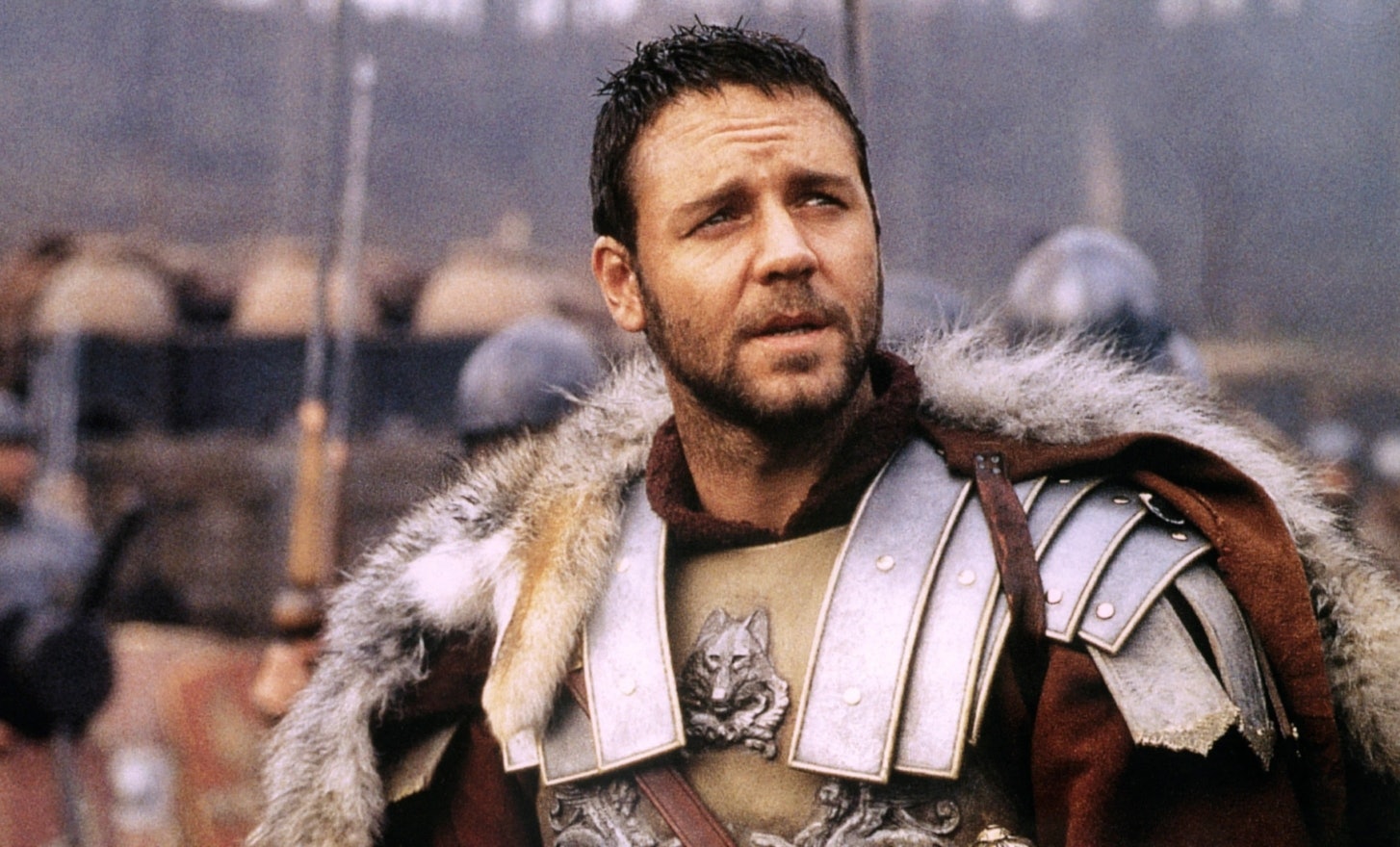
As Hollywood films become increasingly homogenous, many tried-and-true staples have been abandoned. Not only have mid-budget rom-coms and R-rated comedies become increasingly rare, but the high-profile historical epic, once reliable blockbuster fare for studios, is also endangered. The loss of the latter has been particularly noteworthy given how stale and safe the realm of blockbusters has become.
Few movies prove the enduring value of big-budget historical epics more effectively than Gladiator. The Ridley Scott-directed smash hit cemented Russell Crowe as a bona fide movie star, and key moments have only become more iconic in the years since its release. Gladiator has become one of those rare movies that everyone feels like they know, regardless of whether they’ve seen it.
Make no mistake: Gladiator is among the 21st century’s greatest blockbusters. Now that it’s streaming on Netflix, it doesn’t take much effort to remember that (or realize it for the first time).
Set in 180 AD, Gladiator introduces us to Maximus Decimus Meridius (Crowe), an esteemed Roman general on the verge of finally finishing his years-long military campaign and returning home to his wife and child. His dreams of a peaceful retirement with his family are dashed, however, when Marcus Aurelius (Richard Harris), the Emperor of Rome and Maximus’ mentor, informs him that he plans to name him his successor. Maximus’ life is further disrupted when Marcus’ conniving son, Commodus (Joaquin Phoenix), murders his father before he can inform his followers of his succession plan.
When Maximus attempts to rebel against Commodus, the new Emperor orders him and his family executed. While Maximus manages to escape his fate, his wife and child do not, and he ends up a slave for prideful former gladiator Antonius Proximo (Oliver Reed). Before long, Antonius has Maximus fight in the Coliseum, unknowingly putting him in the path of Commodus and the vengeance Maximus so fervently desires. From there, Gladiator tells a straightforward but gripping revenge story.
There’s very little unique or subversive about Gladiator’s plot. The film borrows a few elements from Roman history, then remixes them into a simple, familiar tale of loss, revenge, and redemption. But it’s the classical nature of Gladiator that makes it such a watchable, crowd-pleasing epic. What the film lacks in narrative invention, it makes up for with the sheer scale at which its story is told.

Behind the camera, Ridley Scott uses his unparalleled talent for conveying tone and scope to visually communicate the expansiveness of Gladiator’s historical world and the tragedy of Maximus’ story. He doesn’t feel the need to rush through the plot, either. Instead, he lets Gladiator unfold at its own pace, which allows moments like Maximus’ unmasking in the Roman Coliseum to land with as much weight as they demand. In front of the camera, meanwhile, Scott’s actors match the power and confidence of his filmmaking.
The film’s three leads each turn in big performances that complement the film. As its protagonist, Crowe turns his natural charisma all the way up and gives the movie star performance of his career, while Phoenix matches his co-star’s intensity with a performance that emphasizes the twisted, cruel, and insecure nature of his character. For her part as Lucilla, the sister of Commodus, Connie Nielsen (Gladiator’s long-unsung MVP) gives a simmering turn that alternates between pure femme fatale and a vulnerable woman trapped in a horrifying situation.
Together, Gladiator’s stars ensure the film’s supersized emotions are all felt, proving that every blockbuster is only as good as the faces that populate it. Scott’s forthcoming sequel will hopefully prove that again, but even if it doesn’t, that won’t take away from the fact that Gladiator is still just as engaging, thrilling, and moving as it was when it hit theaters 23 years ago.
Gladiator is streaming on Netflix.







